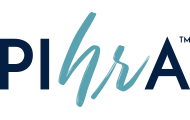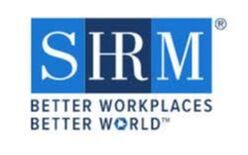|
Learning takes place on a daily basis, whether we want it to or not. Much like taxes and bills, it is a staple of the business society in which we live in. How professionals learn, on the other hand, has changed significantly. There once was a time where training tasks were completed either on the job or in a classroom environment. Now, learning can be done on the go and any other place where an internet connection is available. This post will look into the here and now with respect to what type of learning management systems (LMS’s) are out there that can be used to facilitate learning to scale within an organization. Learning Management Systems (LMS’s) in A Nutshell Prior to going into different systems and their comparative analysis, most people are unfamiliar as to what a learning management system really is. To use an analogy of a car, think of the vehicle itself as the tool used to deliver learning to an audience. Those in the car can come from all walks of life, levels of education, and their knowledge in the area they are working in. The engine is the LMS. In order for the learning to take place, a system has to be in place in order to deliver the learning experiences to the end users (e.g. contractors, employees, vendors, etc.). The components of the car like the pedals, steering wheel, brakes, and so on, encompass the computer system that runs behind the scenes in order for the learning experiences to occur properly. This includes hardware (e.g. servers) and software components. Road maps provided to the learners can be applicable to the user-interfaces that help direct learners to their course or certification destinations. LMS’s are often associated with web-based technology, but can include offline components (e.g. gas stations and repair shops), so that they are as reliable as possible. In short, it’s a means to an end to obtain learning experiences in a flexible and mobile environment (Pappas, 2017; Powell, 2018; Talentlms.com, 2018). The Landscape of Online Learning When looking at the different types of LMS’s that make up the landscape of online learning, it is best to separate them into two (2) different categories: open source/low-and traditional LMS’s. Depending on the system, the ones provided in our blog entry today can apply to more than both categories depending on its intended audience. Just because there are open-sourced learning systems out there, they are used more widely in companies big and small than one may think. While there are hundreds of choices out there, our focus today will be on the most popular ones for each of these categories. Our goal here is to provide an idea of what one could use if approaching learning from that specific point of view. Open Source LMS Platforms Naturally, one of the most popular LMS’s used by both businesses and academic institutions is Moodle (http://www.moodle.com). One thing a lot of people don’t know about this platform, was that the pursuit of it becoming a reality goes back to the 1970’s, when its founder, Martin Dougiamas, followed his passion to create an internet-based software platform. More than 20 years later, he began creating the platform through his doctorate degree research and in 2001, it was born. Millions of users, though concentrated in the academic world, use this platform to gain knowledge on a daily basis. More recently, they now have cloud-based options, so that no hardware is required, ultimately deeming it one of the fastest routes to host online courses for free for up to 50 users before charges apply (Moodle.com, 2018). If you desire a simple and easy platform to use, this is the best choice for an open-sourced option (Ingerwersen, 2017). Furthermore, there are other platforms that are just as practical to use as well. Honorable mentions in this category include LatitudeLearning (http://www.latitudelearning.com) as the runner-up to Moodle. One advantage this LMS has over the kingpin of open-source LMS’s is that it provides information access for up to 100 users. Another advantage is that it is used by some of the world’s largest vehicle manufacturers such as Chrysler and General Motors (GM) (Ingerwersen, 2017). Thus, with their collective user-base of over 3 million, they are a good alternative platform depending on the needs and wants for organizational learning (LatitudeLearning.com, 2018). Myicourse (http://www.myicourse.com), Coggno (http://www.coggno.com), and Totara (http://www.totara.com) are also tremendous options in this space. Traditional LMS’s The second category that we will look at in this brief are your traditional learning management systems (LMS’s) that one may use in a corporate setting. In terms of flexibility, performance, and usability, they are comparably better than their open-source counterparts. Traditional LMS’s are also able to handle far more users at one time when compared to their open-source counterparts. This is especially true if there is a lot of media content that has to be viewed by many learners at the same time. Also, one should know that these are commonly ran by hardware and tend to be less cloud-based. Thus, the infrastructure costs up front to implement a system can be fairly high, but is often recouped over the life of the system fairly quickly. Research has shown that Adobe Captivate Prime (https://www.adobe.com/products/captivateprime.html) seems to be the winner with respect to the commercial space use of an LMS. If one is familiar with the instructional technology industry, it is arguable that Adobe Captivate is one of the most widely used software platforms to create online learning content. What Adobe has done is extend that idea into its own learning management system as an extension of the software itself. In terms of ease of use and setup, this is certainly one of the better choices to use on a larger scale. If one knows the Adobe way of completing tasks, it is an added bonus in their favor because the turnaround time is far less in terms of completing course material than it would be starting from scratch. Runner-ups in this space include some others that have gained some popularity over time. These include Docebo (http://www.docebo.com), which is “one of the most highly acclaimed cloud-based Learning Management Systems, endorsed by reputable companies such as Thomson Reuters, Bloomberg, and Sharp” (Pappas, 2015). Looop (http://www.looop.co) is another good alternative platform, which doesn’t require as much tech-savviness to create course material, and eCoach LMS (http://www.ecoach.com) is one that is geared towards mobile devices. Conclusion In our brief discovery of the different types of LMS’s out there, it is conclusive that there are many to choose from. Whether they are free or very low-cost, others can run into the hundreds of thousands of dollars per month depending on the user-base, hardware, and software infrastructure involved. At the end of the day, what matters is determining the best way to deliver content to learners using said system. Naturally, a needs analysis and, at times, a lot of prep work will need to be done in order to get the best results for all. The great news is that here at Integrity MCG, we can help firms navigate through this journey and find the best one for their needs. Besides, learning is a lifelong experience, and that goes for businesses too. References
5 Comments
6/23/2021 08:30:04 pm
Great article! Your content is beneficial. Thank you, and Keep Sharing.
Reply
6/29/2021 09:43:38 pm
Very much helpful article! Thank you for sharing this informative post, and looking forward to the latest one.
Reply
Leave a Reply. |
AuthorDr. Danielle Jenkins provides insights and tips on how to strategically run your business in the most efficient manner possible. Archives
June 2019
Categories
All
|
Proudly partnered in the community with the following organizations
|














